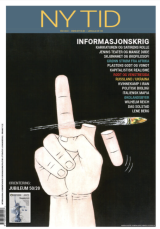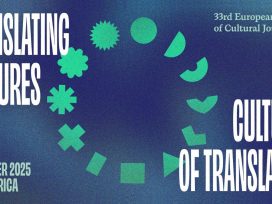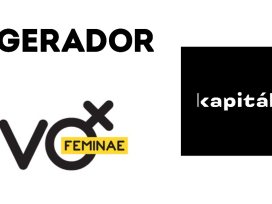Online influencers are using religion to give misogyny a virtuous veneer. How can society support boys and young men, labelled as incels and bombarded with digital hate, seek answers to questions on life and trauma without resorting to male stereotypes?
Articles
The anti-EU sentiment emerging from Central Europe today suggests that little remains of the ‘arch-Europeanism’ Milan Kundera once ascribed to the region. But was there something inherent to Kundera’s concept of Central Europe that explains the logic of contemporary Polish, Hungarian, Czech and Slovak nationalism?
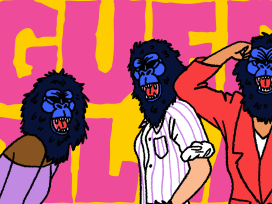
AI-generated non-consensual porn is devastating the lives of girls and women. Online images sexualized at the click of a button reveal how unrealistic standard advice for women to exercise caution is. Regulation of AI products that enable sexual violence is a first step. But an ideological and intellectual shift on women’s freedom is needed.

Challenging the paradigms
Comparison, gender and migration
A discussion with the historian Nancy L. Green on the historiography of migration from structuralism to intersectionality; the relevance of trajectories in an age of global movement; and walls, epistemologies and the limits of transnationalism.
Recommended topics

Arguments that ‘hate speech’ is ‘free speech’ abound. The far-right push to normalize offensive language in the name of protection is hypocritical and needs calling out. But is it also time for liberal free speech theory’s ‘marketplace of ideas’ to be reassessed?

We live in a world where the borders between one language and another, between reality and non-reality, between the human and the non-human, are being denied. As a reminder of difference and an openness to encounter, translation can be an antidote to the nihilism of borderlessness. [Slovenian version added]

Whether an Ivy League academic or a Patriot Front white nationalist, Curtis Yarvin will find your position too democratic. The once obscure blogger’s brand of postliberalism calls for a political system reboot popular with MAGA and Big Tech leaders. But does his eccentric mix of elitist, pseudo-religious and computational thought reflect chaos more than his desired order?

“Come Together” is founded on the principles of partnership and peer-to-peer learning among individuals within community media organizations situated in six different countries. Instead of generating entirely new knowledge, the initiative aims to unearth and leverage the existing wisdom residing within these organizations to foster innovative approaches.
Eurozine review

Hic sunt leones
Scena9 2025
Looking at what we have learned not to see: communist infrastructure; museums and mnemonic warriors; folklore and the spirit of community.

Dating Darth Vader
Vox Feminae
Protesting Croatia’s ‘manly’ prayer movement; questioning the benefits of AI psychotherapy; owning up to a chatbot relationship.

Sexual rights and rivers
Gerador 2025
Portugal’s growing home insemination industry; 15 years of same-sex marriage; the ‘kingfishermen’ return to Portuguese rivers.
Focal points
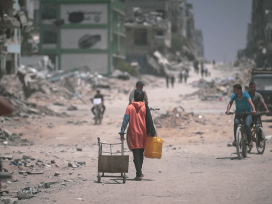
An ongoing series in Eurozine discussing questions raised by the 7 October attacks and their devastating aftermath. They are a sample of articles published in the wider Eurozine network and represent diverse standpoints and authors, including above all Palestinians.

Post-revolutionary Ukrainian society displays a unique mix of hope, enthusiasm, social creativity, collective trauma of war, radicalism and disillusionment. With the Maidan becoming history, the focal point ‘Ukraine in European Dialogue’ explores the new challenges facing the young democracy, its place in Europe, and the lessons it might offer for the future of the European project.

Inspired by a lecture that Clifford Geertz delivered in 1995 at the Institute for Human Sciences in Vienna, this focal point engages with ‘deep diversity’, ‘a sense of dispersion, of particularity, of complexity and of uncenteredness’ rather than unified world order. It follows the launch of a research programme of the same name at the institute in January 2023.
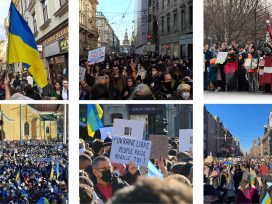
Russia’s invasion of Ukraine poses the greatest challenge to Europe’s self-understanding since World War II. Contributors to the new series ‘Lessons of war’ take on this challenge and reflect on the possibility of a ‘Rebirth of Europe’.



